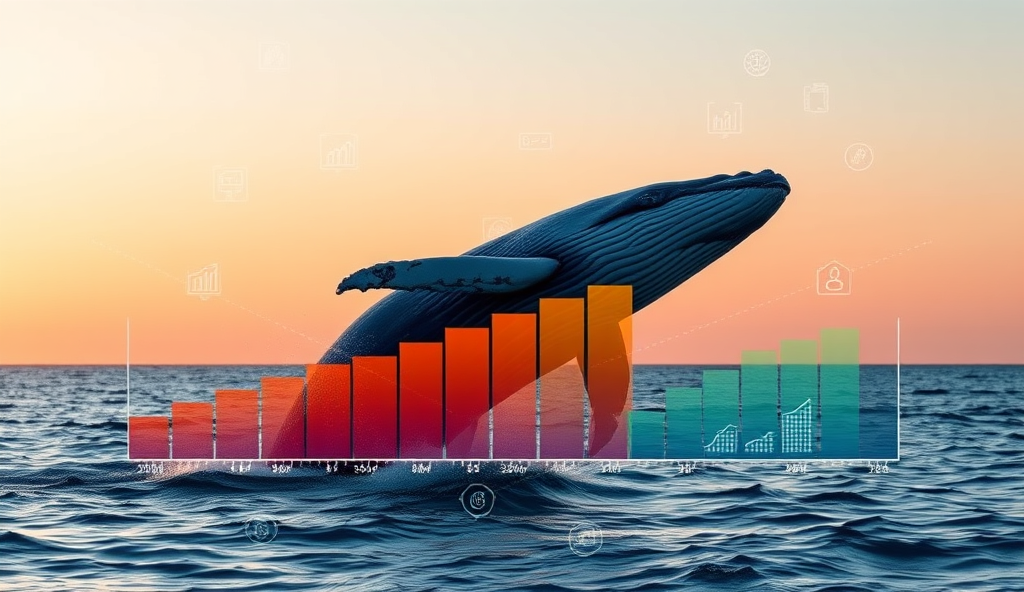Introduction to Data Monetization Tokens and Taxation
Data monetization tokens represent a growing asset class where users earn crypto rewards for sharing personal data, creating unique tax challenges for investors. Unlike traditional cryptocurrencies, these tokens often blur lines between income and capital gains, requiring careful classification for accurate tax reporting.
For example, platforms like Ocean Protocol reward users with tokens for data sharing, which may be taxed as ordinary income upon receipt.
Tax authorities globally are still developing frameworks for how to tax data monetization tokens, with approaches varying by jurisdiction. In the US, the IRS treats them as property, meaning transactions trigger capital gains taxes, while the EU is considering specific data token regulations under MiCA.
Investors must track acquisition costs and disposal values meticulously to comply with evolving rules.
Understanding these nuances is critical before diving into token economics, as tax obligations can significantly impact investment returns. The next section will explore different types of data monetization tokens and their distinct tax implications.
Key Statistics

Understanding Data Monetization Tokens
Data monetization tokens represent a growing asset class where users earn crypto rewards for sharing personal data creating unique tax challenges for investors.
Data monetization tokens function as digital assets that compensate users for sharing or licensing their personal data, creating a decentralized marketplace for information exchange. Unlike traditional crypto assets, these tokens derive value from underlying data streams rather than pure speculation, as seen with projects like Streamr and IOTA.
The tax implications of data monetization tokens vary based on whether they’re classified as income (received for data sharing) or capital assets (held for investment). For instance, US investors receiving Ocean tokens for data contributions must report them as ordinary income at fair market value upon receipt, while subsequent trades trigger capital gains.
As regulatory frameworks evolve, investors must distinguish between token utility (data access rights) and financial value when assessing tax obligations. This distinction becomes crucial when examining how data monetization tokens function in the crypto market, which we’ll explore next.
How Data Monetization Tokens Function in the Crypto Market
The tax implications of data monetization tokens vary based on whether they're classified as income (received for data sharing) or capital assets (held for investment).
Data monetization tokens operate as hybrid assets, combining utility for data access with tradable value on crypto exchanges, as demonstrated by Ocean Protocol’s 300% trading volume surge in Q2 2023. Their market behavior differs from conventional cryptocurrencies since price fluctuations often correlate with demand for specific datasets rather than broader crypto trends.
Projects like Streamr enable real-time data streaming, where token holders earn rewards for providing IoT sensor data, creating a tangible link between token value and data quality. This dual functionality complicates tax treatment, as tokens may simultaneously represent payment for services (income) and speculative investments (capital assets).
The crypto market’s valuation of these tokens hinges on both their underlying data utility and speculative trading, requiring investors to track acquisition methods for accurate tax reporting. This market complexity directly impacts how tax authorities classify these tokens, a critical consideration we’ll examine next.
Tax Classification of Data Monetization Tokens
Given their dual nature as utility assets and speculative instruments tax authorities globally struggle to uniformly classify data monetization tokens.
Given their dual nature as utility assets and speculative instruments, tax authorities globally struggle to uniformly classify data monetization tokens, with the IRS treating them as property while EU regulators often categorize them based on usage. For instance, Ocean Protocol tokens used for dataset purchases may be classified as business expenses, whereas those held for trading fall under capital assets, creating reporting complexities.
The tax implications of data tokens vary significantly by jurisdiction, with Singapore’s IRAS taxing them as goods/services when exchanged for data but as investments when traded on exchanges. Projects like Streamr complicate matters further by blending income (data provider rewards) with capital appreciation, requiring investors to maintain detailed records of token usage.
This classification ambiguity directly impacts how capital gains are calculated, a critical factor we’ll explore next when examining specific tax treatment scenarios. Proper documentation of token acquisition methods—whether through mining, purchases, or rewards—becomes essential for accurate reporting across these hybrid use cases.
Capital Gains Tax on Data Monetization Tokens
Timing disposals strategically can significantly reduce capital gains taxes especially when selling tokens like Ocean Protocol during market dips to offset gains from other investments.
The classification challenges discussed earlier directly influence capital gains calculations, as tax authorities apply different holding periods and rates based on whether tokens are deemed investments or utility assets. For example, IRS Form 8949 requires separate reporting for Ocean Protocol tokens held under one year (short-term, ordinary income rates) versus those held longer (long-term, reduced 15-20% rates), with cost basis determined by acquisition method.
EU jurisdictions like Germany impose zero capital gains tax after a 12-month holding period for speculative assets, while France applies a flat 30% rate regardless of duration—creating stark contrasts in tax liabilities for identical Streamr token transactions. Investors must track disposal dates and original purchase prices across wallets and exchanges, as demonstrated by Singapore’s 2023 case where unrecorded airdrops led to penalties for underreported gains.
These complexities underscore why proper documentation is critical, especially when transitioning between token use cases—a theme we’ll expand upon when examining income tax implications for staking rewards and data provider payments. Meticulous records of acquisition dates, conversion events, and jurisdictional rules form the foundation for compliant reporting across hybrid token models.
Income Tax Implications for Data Monetization Tokens
Specialized crypto tax software like Koinly or TokenTax automatically tracks wallet-to-wallet transfers and calculates capital gains using preferred cost basis methods.
Building on the documentation requirements from capital gains reporting, income tax treatment for data monetization tokens varies significantly based on their use case—whether received as payment for services or earned through staking. The IRS treats tokens like Ocean Protocol rewards as ordinary income at fair market value when received, creating immediate tax liabilities even if unconverted to fiat, as seen in 2022 guidance for decentralized data marketplaces.
Some jurisdictions apply distinct rules for passive versus active income—Germany taxes staking rewards at personal income rates (up to 45%) while Portugal exempts them if held over 365 days. This divergence necessitates tracking token movements between wallets and exchanges, particularly when converting utility tokens to investment assets, as highlighted by Australia’s 2023 ruling on Streamr DATA token swaps.
These income recognition complexities directly impact how investors report earnings, setting the stage for our next discussion on tax return documentation strategies. Proper classification of transactions—whether as service income, staking rewards, or capital gains—determines both reporting formats and applicable deductions across jurisdictions.
Reporting Data Monetization Tokens on Tax Returns
Accurate reporting of data monetization tokens requires separate tracking for income events (like staking rewards) and capital gains, as the IRS and other tax authorities treat these differently—staking rewards appear on Schedule C or equivalent forms while disposals belong on capital gains schedules. Investors must document fair market values at receipt and disposal dates, especially when dealing with tokens like Ocean Protocol that fluctuate significantly between acquisition and sale.
The UK’s HMRC requires detailed records of wallet addresses and transaction hashes for audit purposes, while Singapore’s IRAS accepts aggregated reports if supported by exchange statements. These jurisdictional differences highlight why investors should maintain granular records, including screenshots of decentralized platforms where rewards were earned, to substantiate reported values during audits.
Proper classification becomes critical when tokens serve dual purposes—for instance, reporting Streamr DATA tokens used for both network participation and long-term investment requires separating service income from capital appreciation. This foundational reporting accuracy directly enables the tax minimization strategies we’ll explore next, where timing disposals and leveraging jurisdictional nuances can optimize liabilities.
Tax Strategies for Minimizing Liabilities on Data Monetization Tokens
Timing disposals strategically can significantly reduce capital gains taxes, especially when selling tokens like Ocean Protocol during market dips to offset gains from other investments. Investors in the US can leverage tax-loss harvesting by selling underperforming tokens before year-end, while UK-based holders benefit from the £12,300 annual capital gains allowance before liabilities apply.
Holding periods matter—Germany exempts long-term capital gains after one year, making it advantageous to retain tokens like Streamr DATA beyond this threshold. Singapore’s progressive income tax rates incentivize spreading staking rewards across multiple tax years, while Portugal’s tax-free crypto disposals create opportunities for jurisdictional arbitrage when structuring holdings.
Proper documentation of wallet movements enables investors to apply specific identification methods (FIFO, LIFO) when reporting disposals, optimizing cost basis calculations. These proactive measures set the stage for avoiding costly errors, which we’ll examine next in common tax pitfalls with data monetization tokens.
Common Tax Mistakes to Avoid with Data Monetization Tokens
Many investors undermine their tax optimization by failing to track wallet-to-wallet transfers, triggering taxable events when moving tokens between personal wallets without proper documentation. Others overlook jurisdiction-specific rules, like Germany’s one-year holding period or Singapore’s income tax on staking rewards, leading to unexpected liabilities.
A critical error involves misapplying cost basis methods—using FIFO by default instead of strategically selecting LIFO during bull markets to minimize gains on tokens like Ocean Protocol. Some also neglect to report airdrops or hard forks as taxable income, creating compliance risks even for inactive wallets.
Inconsistent record-keeping compounds these issues, especially when reconciling transactions across decentralized exchanges or DeFi platforms. These oversights highlight why leveraging specialized tools—covered next—is essential for accurate tax reporting on data monetization tokens.
Resources for Tracking and Calculating Taxes on Data Monetization Tokens
Specialized crypto tax software like Koinly or TokenTax automatically tracks wallet-to-wallet transfers and calculates capital gains using preferred cost basis methods (FIFO, LIFO) for tokens like Ocean Protocol, addressing the record-keeping challenges highlighted earlier. These tools integrate with DeFi platforms and DEXs to reconcile complex transactions while applying jurisdiction-specific rules, such as Germany’s holding period or Singapore’s staking tax.
For manual tracking, investors can use blockchain explorers like Etherscan paired with spreadsheets, though this requires meticulous documentation of airdrops, hard forks, and cross-wallet movements to avoid compliance gaps. The IRS’s virtual currency guidance and platforms like CoinTracker provide templates for reporting data monetization tokens as income or capital assets, depending on their use case.
As regulations evolve, subscribing to tax authority updates (e.g., HMRC’s crypto manuals or the IRS’s Form 1040 instructions) ensures alignment with changing reporting requirements for data token earnings. These resources collectively mitigate the risks of misapplied cost basis methods or overlooked taxable events discussed in prior sections.
Conclusion: Navigating Tax Obligations for Data Monetization Tokens
Understanding the tax implications of data monetization tokens requires careful consideration of their classification as property or securities, as discussed in earlier sections. Investors must track transactions meticulously, especially when tokens are exchanged for services or other cryptocurrencies, to accurately report capital gains or income.
For example, US taxpayers must report transactions exceeding $600, while EU regulations may treat them as VAT-exempt digital assets.
The evolving regulatory landscape demands proactive compliance, with jurisdictions like Singapore offering clearer guidelines than others. Proper documentation of token usage, acquisition costs, and disposal dates is crucial for accurate tax reporting across borders.
Investors should consult local tax professionals to navigate specific reporting requirements for data token taxation guidelines in their region.
As crypto tax rules for data tokens continue developing, staying informed about IRS guidelines and international standards remains essential. Implementing robust tracking systems now can prevent costly compliance issues later, especially as authorities increase scrutiny of data monetization token tax reporting.
The next section will explore advanced strategies for optimizing tax efficiency while maintaining full compliance with global regulations.
Frequently Asked Questions
How are data monetization tokens taxed when received as rewards for sharing personal data?
Most jurisdictions treat them as ordinary income at fair market value upon receipt – use Koinly to track and value rewards automatically.
What's the best way to calculate capital gains on Ocean Protocol tokens held across multiple exchanges?
Use FIFO/LIFO methods consistently and document all transactions with TokenTax which supports multi-exchange portfolio tracking.
Can I deduct expenses related to earning Streamr DATA tokens on my tax return?
Yes if classified as business income – maintain receipts for hardware and data costs using Expensify for crypto-specific deductions.
How do different countries tax staking rewards from data monetization tokens?
Varies widely – Germany taxes as income while Portugal exempts after 1 year; consult CryptoTaxCalculator's jurisdiction guides for specifics.
What records should I keep for IRS audits involving data token transactions?
Preserve wallet addresses transaction hashes and screenshots of reward events – use Cointracker's audit trail feature for organized documentation.





